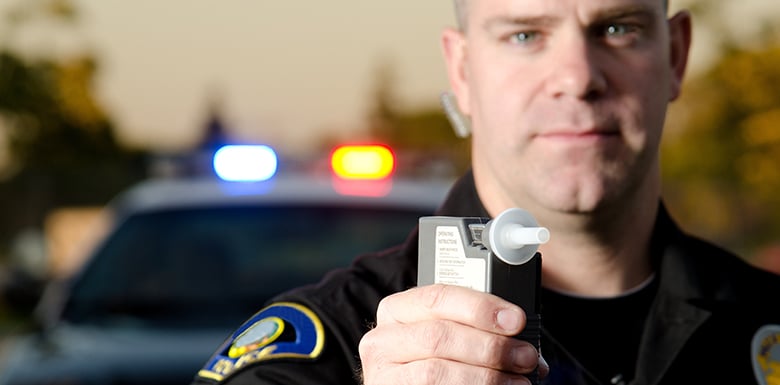7 Things That May Affect a Breathalyzer
Jul 15 2020, by in Criminal Defense, DUI, Legal Blog
You hear about people challenging DUI tests, but how do lawyers get breathalyzer results thrown out? After all, breath tests are used to detect alcohol in a person’s system – if it shows a BAC of 0.08 or above, isn’t that the end of the story?
Well – not necessarily. There are various substances and medications that can cause a breathalyzer to detect alcohol when that person hasn’t been drinking.
If you’ve been charged with a DUI in or around Philadelphia and believe the DUI test result was inaccurate, contact a Philadelphia DUI defense attorney right away. Call Fienman Defense at (215) 839-9529 for a free initial consult.
We’ll review the details, and if your breath tested positive, but you weren’t drinking, we can challenge the results in court.
Medications That Can Affect Breathalyzers
It has been well-established that the following medications and substances can cause false positives for BAC in breath testing:
1. Asthma medications
Albuterol, salmeterol, and budesonide are asthma medications that may affect breath tests. These medications go by numerous brand names, so you should speak with your physician about what your asthma inhaler contains. If you used your inhaler before a breath test, you could test close to or over the legal limit.
2. Nyquil and OTC medications with alcohol
Nyquil, certain Vicks products, and other OTC medications contain alcohol. If you’re working through a cold and took medication, your breath test could come back positive. You also have to watch for some cough drops that contain alcohol. These are smaller amounts, but using them consistently could lead to a false positive.
3. Anbesol in Oral Gels
People often turn to oral gels to soothe toothaches and canker sores. But the active ingredient Anbesol is a local anesthetic and can lead to false-positive breath tests.
4. Mouthwash and Breath Spray
Most people know that some mouthwash and breath sprays contain alcohol. It isn’t surprising that if someone recently used an alcohol-heavy mouthwash, the breath test may detect remnants of alcohol.
5. Fumes
This is an unlikely scenario, but if you spent hours working around paint in a poorly ventilated area before the breath test, the fumes in your system can affect a BAC test. The same can be true for other chemicals, adhesives, and varnish.
6. Gastroesophageal Acid Reflux
Acid reflux is when alcohol contents in a person’s stomach make their way into the person’s esophagus and mouth. A small amount of alcohol in a person who suffers from acid reflux can lead to a breath test result above the legal limit.
7. Ketones
People with diabetes may blow a higher BAC because of chemicals produced in their bodies. When a person’s body doesn’t have correct insulin levels, glucose builds – known as high blood sugar. This leads to cells burning fat instead of glucose, increasing ketones in the body. These ketones lead to acetone in the breath, which can throw off a breath test. This has also been known to happen to people who are dieting.
How a DUI Defense Attorney Can Help
Fienman Defense has considerable experience challenging inaccurate DUI tests in Pennsylvania and New Jersey. Let us help determine if any medications or substances could have affected your breath test.
We can also look into the equipment used because various breath test machines interact with medications and substances differently. When we’re confident we know what caused the false positive, we can move to suppress the evidence or prove it in court.
If you were arrested for a DUI and want to discuss all your options, call an experienced Philadelphia DUI defense attorney at Fienman Defense. Free and confidential consults: (215) 839-9529.


